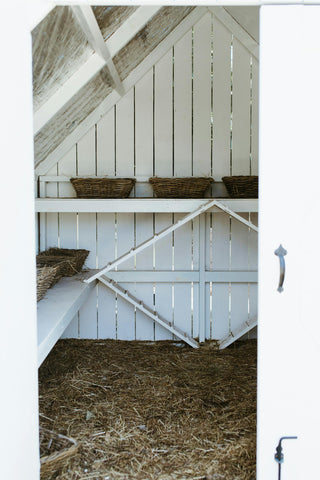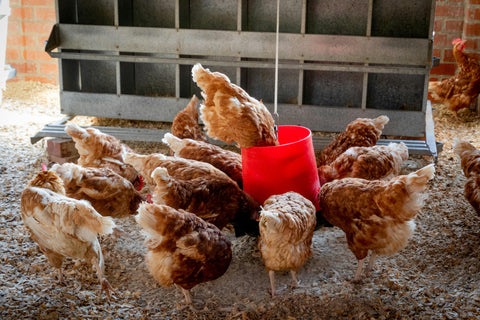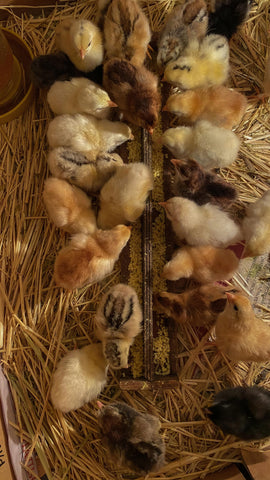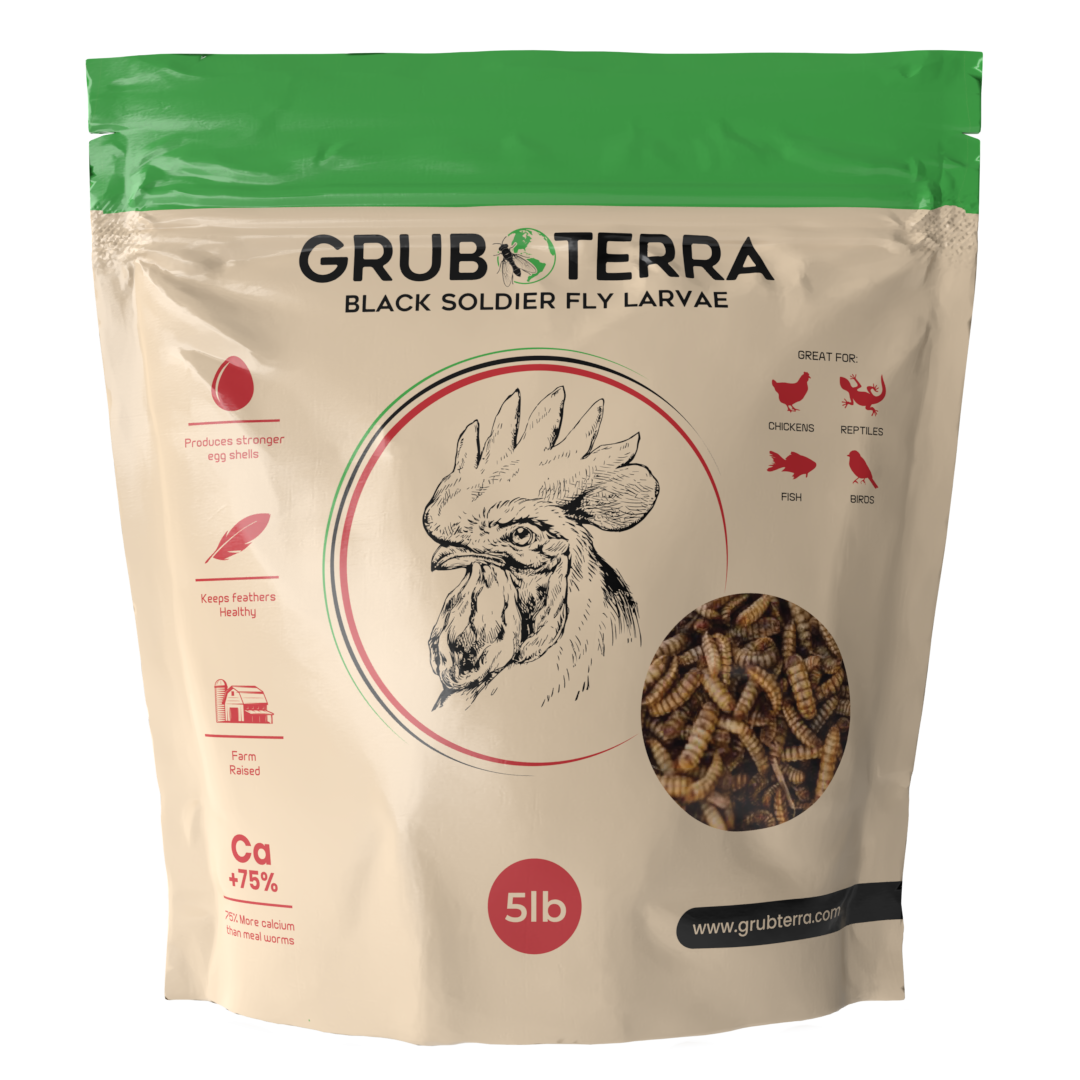The Basics of Coop Cleanliness
A clean coop starts with a solid routine. Daily tasks such as removing waste and checking for signs of pests or disease can significantly impact the overall health of your chickens. Weekly tasks might include changing bedding and scrubbing waterers and feeders, while a monthly deep-clean could involve inspecting for structural damage and thorough cleaning of all surfaces. Explore our range of eco-friendly cleaning solutions at GrubTerra.

Choosing the Right Bedding Material
The choice of bedding material can affect not just the cleanliness of the coop but also the health of your chickens. Materials like straw, pine shavings, and sand have their pros and cons, and understanding these can help you make the best choice for your situation.
Ventilation and Its Impact on Cleanliness
Good ventilation is crucial for maintaining a clean coop. It helps to remove dampness, reduce ammonia levels, and keep the air fresh. This section explores how to design your coop for optimal airflow and the tools that can help achieve it.
Managing Waste in the Coop
Effective waste management is pivotal in maintaining coop cleanliness. This section covers systems for removing waste, options for composting, and how to handle bedding material to minimize the risk of disease.
Pest Control Strategies
Pests can be a significant problem in chicken coops, spreading disease and causing stress to your birds. Here, we explore methods to identify and control common pests using both natural and chemical solutions.
Water System Maintenance
Clean water is essential for chicken health. This section discusses the importance of keeping water sources clean and shares best practices for maintaining your coop's water system.
Feeding Systems and Coop Cleanliness
The design and maintenance of your feeding system can greatly influence coop cleanliness. Learn about the different types of feeders and how to keep feeding areas clean and free of pests. Visit GrubTerra for a selection of chicken feeders.

Health Monitoring and Cleanliness
A clean coop contributes to the overall health of your chickens. Regular health checks and understanding the link between cleanliness and health are crucial aspects of chicken care.
DIY Cleaning Solutions
For those interested in natural cleaning options, this section provides recipes for homemade cleaners that are safe and effective for use in chicken coops.
The Role of Chicken Behavior in Coop Cleanliness
Understanding chicken behavior can help in designing a coop that encourages cleanliness. This part discusses how to leverage natural chicken behaviors for a cleaner living environment.
Seasonal Cleaning Tips
The changing seasons bring different challenges in maintaining coop cleanliness. Here, we offer tips for preparing your coop for winter and a checklist for spring cleaning.
Technological Advances in Coop Maintenance
Discover the latest innovations in coop cleaning, including automated tools and systems that can help simplify the maintenance of your coop.
Community and Expert Advice
Engaging with the chicken-keeping community and seeking advice from experts can provide valuable insights into maintaining a clean coop. This section highlights forums and resources for further learning.

FAQs
-
How often should I change the bedding in my coop?
The frequency of bedding changes depends on the type of bedding you use and the number of chickens you have. A general rule is to change it whenever it becomes damp or soiled, which might be weekly for smaller coops or more frequently for larger flocks. -
What's the best way to control pests in my coop?
The best approach combines preventative measures, such as maintaining cleanliness and using proper bedding, with targeted interventions like natural predators, diatomaceous earth, or, when necessary, chemical pesticides specifically designed for use around poultry. -
Can I compost chicken waste?
Yes, chicken waste can be an excellent addition to your compost pile. It's rich in nitrogen, which helps break down organic material. However, it's important to compost it properly to kill any pathogens before using it in your garden. -
How do I know if my coop has adequate ventilation?
Signs of poor ventilation include condensation on the walls, a strong ammonia smell, and respiratory issues in your chickens. A well-ventilated coop will have clean, fresh air without drafts directly on the birds. -
Is it safe to use homemade cleaners in my coop?
Yes, homemade cleaners, especially those made from natural ingredients like vinegar, are safe and effective for cleaning coops. They can help maintain cleanliness without exposing your chickens to harmful chemicals. -
What are the signs that my coop needs a deep clean?
Indicators that a deep clean is needed include an accumulation of droppings, a noticeable odor, an increase in pest activity, and any signs of mold or mildew. Deep cleaning should be done at least twice a year, but more frequently if these signs appear.
Conclusion
Maintaining the cleanliness of your coop is a continuous commitment that pays off in the health and happiness of your chickens. By following the guidelines and tips outlined in this article, you can create a clean, comfortable home for your flock that minimizes the risk of disease and maximizes their well-being. For more information and to access a wide range of products to help maintain your coop, visit GrubTerra.


